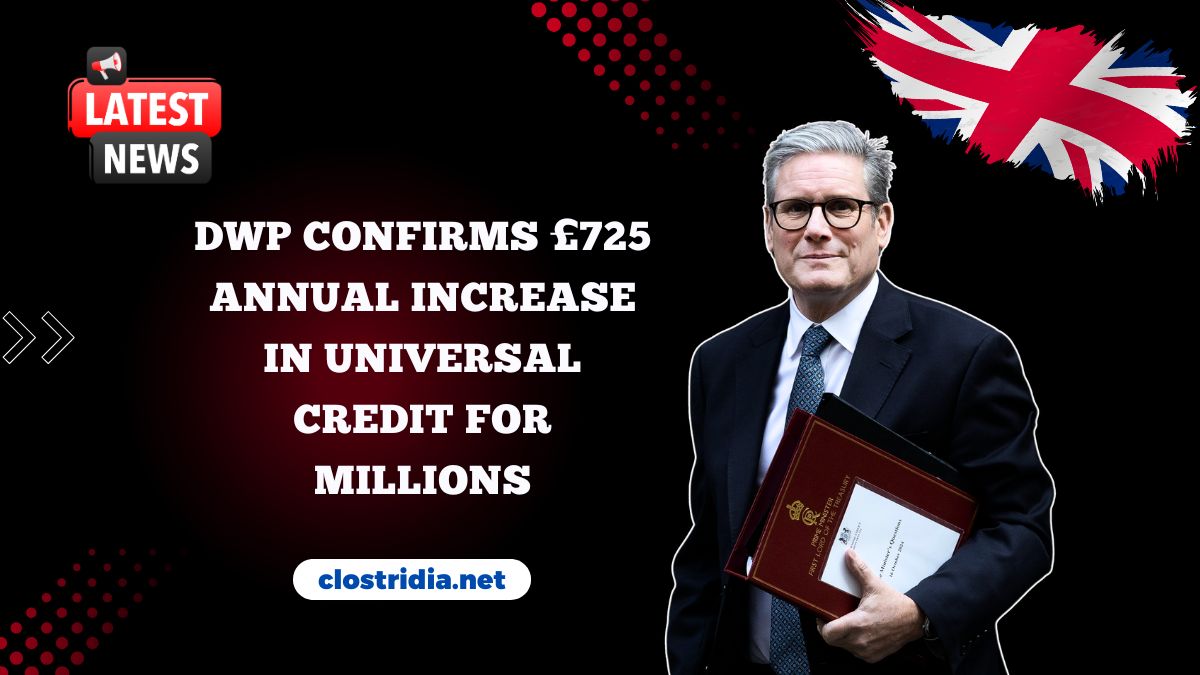The Department for Work and Pensions (DWP) has announced a sweeping set of reforms under the Welfare Reform Bill 2025, including a £725 Universal Credit increase for specific claimants.
But contrary to some headlines, this isn’t a one-time lump sum, and it doesn’t apply to everyone. The bill introduces gradual increases, significant adjustments to disability benefits, and new qualifying standards for Personal Independence Payment (PIP).
What Is the £725 Payout?
The £725 payout is not an immediate cash handout. Instead, it’s a phased annual increase to the Universal Credit standard allowance for single claimants aged 25 and over, set to roll out from April 2026 and fully implemented by 2029/30.
| Detail | Information |
|---|---|
| Who qualifies | Single Universal Credit claimants, 25+ |
| Total increase by 2029/30 | £725 annually |
| Rollout period | April 2026 – March 2030 |
| Payment type | Gradual annual increase (not lump sum) |
| Number of households affected | Estimated 4 million |
What the Bill Really Offers
While the increase is welcome news for many, the Welfare Reform Bill also includes policy shifts that are stirring concern, especially among disabled individuals and their advocates.
The Good: Extra Universal Credit
- Aimed at improving support for single adult claimants over 25.
- Adds up to £725 per year by 2029/30, easing pressure from rising living costs.
- Supports low-income individuals transitioning back into the workforce.
The Concern: Disability Benefit Changes
- LCWRA Freeze (Limited Capability for Work and Work-Related Activity)
- Payments frozen from 2026 to 2029, affecting many with long-term disabilities.
- New claimants post-April 2026 to receive reduced LCWRA rates.
- Stricter PIP Assessments
- The PIP scoring system will be reformed, potentially disqualifying some recipients.
- Those with fluctuating mental health or non-visible disabilities may find it harder to qualify.
Who Won’t Benefit?
Not all claimants will see this boost. Couples, those under 25, and people already receiving work-related elements may not qualify for the new rate. Additionally, the seven million figure circulating is misleading. The DWP estimates that the change will directly benefit about 4 million households.
Voices from the Community
Disability rights groups and welfare advocates have voiced strong concerns. They argue that:
- Freezing LCWRA payments could leave vulnerable individuals struggling with rising costs.
- Tougher PIP rules might unfairly cut off essential support for those in need.
- Lack of transparency in rollout timelines could confuse and exclude eligible individuals.
These concerns underline the importance of understanding the reforms beyond the headlines.
What You Should Do Now
Review Your Benefit Status
- Log into your Universal Credit account.
- Check your current benefit type and age-based category.
Prepare for Changes
- Collect medical documents if you’re on PIP or LCWRA.
- Keep updated on DWP announcements about assessment changes and appeal processes.
Seek Help If Needed
- Citizens Advice, Disability Rights UK, and local welfare advisors can help you navigate the coming changes.
The £725 Universal Credit boost under the DWP’s Welfare Reform Bill brings both opportunity and challenge. While millions will benefit from the gradual uplift in income, changes to disability support systems raise pressing concerns.
Staying informed, understanding your rights, and preparing in advance will help you navigate the evolving welfare landscape more confidently.
FAQs
Will everyone on Universal Credit receive the £725 payout?
No. Only single claimants aged 25 or older will receive the full increase, phased over four years.
Is the £725 paid all at once?
No. It is a gradual increase to the standard allowance of Universal Credit, not a lump-sum payout.
How does the Welfare Reform Bill affect disability benefits?
It includes a freeze on LCWRA payments and stricter PIP assessment rules, potentially impacting current and new claimants.
